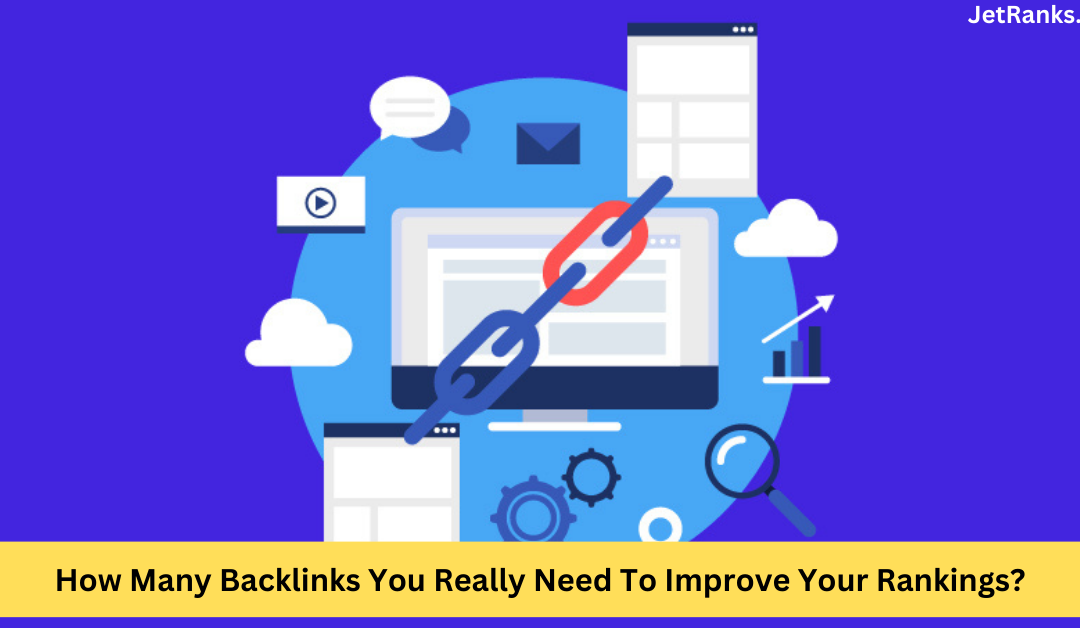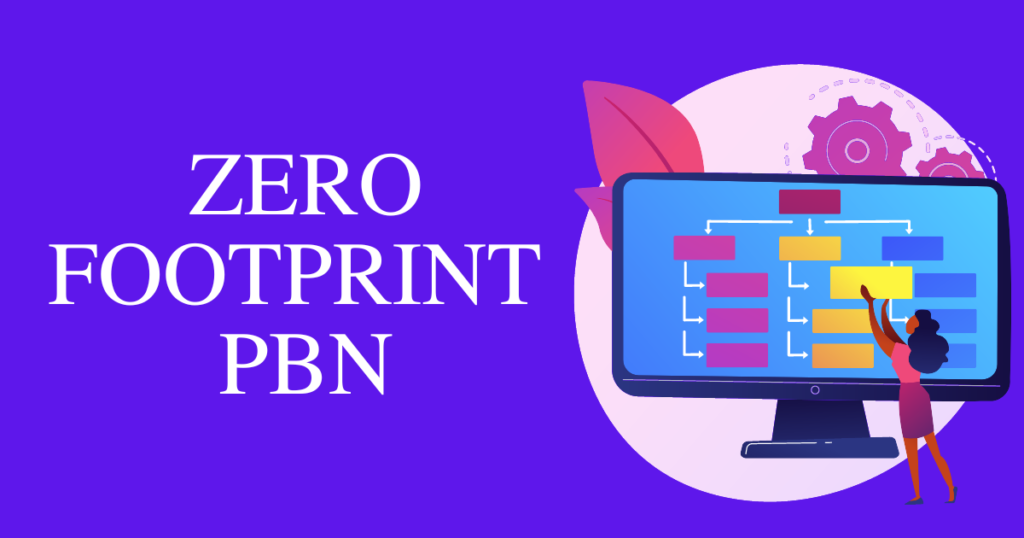If you’re looking to improve your website’s search engine rankings, you’ve probably heard about the importance of backlinks. But with so much conflicting information out there, it can be hard to know exactly how many backlinks you need to see significant improvements in your SERP results. In this blog, we’ll cut through the noise and deeply dive into the world of backlinking – giving you all the information you need to crack the code and boost your rankings for good!
The Basics Of Backlinks
Backlinks are one of the most important ranking factors for SEO. But how many backlinks do you need to improve your rankings?
The answer may surprise you: it’s not as many as you think.
In fact, according to Moz’s ranking factors study, backlinks are responsible for about 16% of the overall ranking algorithm. Other factors like on-page optimization, site structure, and content quality determine 84% of your ranking.
If you’re just starting with link building, your goal should be to build high-quality backlinks from relevant websites. Once you’ve built up a strong link profile, you can focus on quantity as well.
But always remember that quality trumps quantity when it comes to backlinks. A few high-quality links will do more for your rankings than hundreds of low-quality links.
What Are The Benefits Of Backlinks?
Regarding SEO, backlinks are still one of the most important ranking factors. That’s because Google’s algorithms place a lot of weight on them to indicate a website’s quality and popularity. In other words, if your site has a lot of high-quality backlinks, you’re more likely to rank higher in search engine results pages (SERPs).
There are plenty of other benefits of backlinks as well. For instance, they can help improve your click-through rate (CTR) and organic traffic. And they can also give your brand more exposure and build relationships with other websites in your industry.
In short, there are many good reasons to focus on building quality backlinks to your website. And if you’re not already doing so, now is the time to start!
Different Types Of Backlinks
There are a few different types of backlinks that you can get for your website. The most common type is the inbound link when another website links to yours. Search engines see this as a vote of confidence and can help improve your ranking. The second type of backlink is an outbound link, which is when you link to another website from yours. This can also help improve your ranking but isn’t seen favorably as an inbound link. Finally, there are reciprocal links when two websites agree to link to each other. These are less common and aren’t given as much weight by search engines.
How Do I Create Quality Backlinks?
If you’re serious about improving your website’s ranking in search engine results pages, you need to build high-quality backlinks. But what exactly constitutes a “quality” backlink? Here are a few key factors:
1. The site linking to you should be relevant to your niche or industry.
2. The link should be placed on a page with a high PageRank.
3. The link should be from a well-established website with a good reputation.
4. The link should use keyword-rich anchor text that includes your target keywords.
Building quality backlinks can be challenging, but it’s well worth the effort since they’re one of the most important ranking factors for search engines.
Quality Vs. Quantity
There’s no question that backlinks are essential for SEO purposes. But how many do you need to see results? The answer, it turns out, is not as many as you might think.
Sure, a high quantity of backlinks will give your site a boost. But it’s the quality of those backlinks that counts. Google looks at factors like the relevancy of the linking site, the authority of that site, and whether or not the link is spammy when determining how much weight to give it.
So while generating backlinks is essential, don’t sweat it if you’re not getting hundreds or even thousands of them. Just focus on ensuring they’re high quality and relevant; you’ll be on your way to better rankings.
How Many Backlinks Are Needed To Rank High?
It’s no secret that backlinks are a critical ranking factor for SEO. But how many backlinks do you need to see results? The answer may surprise you.
A recent study by Moz found that the number of backlinks needed to rank in the top 10 results for a given keyword is just over 200. That’s not a lot, considering the millions of websites vying for attention.
Of course, the quality of those backlinks also matters. A link from a high-quality website will carry more weight than a low-quality one. So, while you don’t need thousands of backlinks to rank high, you do need to focus on building links from websites that are relevant to your niche and have a good reputation.
Tools For Finding Quality Links
You can use several tools to find quality backlinks for your website. Here are a few of the most popular:
1. Google Search Console: This free tool from Google can help you identify which websites are linking to your site and what kind of link they use (nofollow or follow).
2. Ahrefs: This paid tool provides detailed information on which websites link to your site, the anchor text they use, and the quality of those links.
3. Moz Link Explorer: This free tool from Moz shows you the internal and external links pointing to your website, the anchor text, and other relevant data.
4. Open Site Explorer: This free tool from SEOmoz provides similar data to Moz Link Explorer but includes social metrics such as Facebook likes and shares, Twitter mentions, and more.
How To Monitor Your Backlink Profile?
If you’re serious about improving your website’s ranking in search engine results pages, you must closely monitor your backlink profile. A backlink is simply a link from one website to another, and your backlink profile is the collection of all the backlinks pointing to your website.
There are a few different ways to monitor your backlink profile. One is to use a tool like Google Search Console or Moz’s Open Site Explorer. These tools will show you which websites are linking to your site and what the anchor text (the text that is hyperlinked) says.
Another way to monitor your backlink profile is to set up Google Alerts for your brand name or website URL. This will notify you whenever your brand name or website is mentioned online, including in links.
Finally, periodically checking your competitors’ backlink profiles is also a good idea. This can give you insight into which websites they’re getting links from and what kind of anchor text they use. You can use the same tools mentioned above (Google Search Console and Moz’s Open Site Explorer) to do this.
Monitoring your backlink profile is essential to SEO, which you should do regularly. You can stay one step ahead by keeping an eye on who’s linking to you, what they’re saying about you, and where your competitors are getting their links from.
How An SEO Agency Can Help You Build Quality Links?
If you’re serious about improving your website’s search engine rankings, you need to build quality links. Fortunately, an experienced SEO agency can help you with this process. Here’s how:
1. The SEO agency will start by conducting a link audit of your website. This will help them identify any existing links that are harmful or useless to your ranking efforts.
2. Once the audit is complete, the agency will work with you to develop a link-building strategy that targets high-quality websites in your niche.
3. The agency will help you execute that strategy by creating link-worthy content and building relationships with other web admins.
4. Finally, the agency will monitor your progress and make sure that your link profile continues to improve over time.
Building quality links is essential for anyone who wants to improve their website’s search engine rankings. An experienced SEO agency can help you achieve this goal by conducting a link audit, developing a targeted link-building strategy, and executing it flawlessly.
Long-Term Link Building Strategies
There’s no magic number regarding the number of backlinks you need to improve your rankings. However, there are specific long-term link building strategies that can help you increase your chances of success.
Prioritizing quality above quantity is one method. Focus on gaining high-quality links from authority sites rather than a large quantity of low-quality ones. This will be more effective in the long run and help you avoid any penalties from Google for using low-quality links.
Another strategy is to diversify your link sources. Don’t just rely on one type of website for your backlinks. Try to get links from various sources, including social media, guest posts, and directories. This will help make your link profile look more natural and help you avoid any potential penalties from Google.
Finally, make sure you’re monitoring your progress over time. Keep track of the number of backlinks you’re acquiring and where they’re coming from. This will help you adjust your strategy if you do not see the desired results.
By following these long-term link building strategies, you can increase your chances of success and avoid any penalties from Google.
Conclusion
In conclusion, the key to improving your website rankings with quality backlinks. The exact number of backlinks you need can vary greatly depending on other factors such as website authority and relevance. Still, a good rule of thumb is to aim for at least 10-50 high-quality backlinks to maximize your chances of ranking higher in search engine results pages. By understanding how many backlinks you need and where they should come from, you can better optimize your website’s SEO technique and increase its visibility online.









